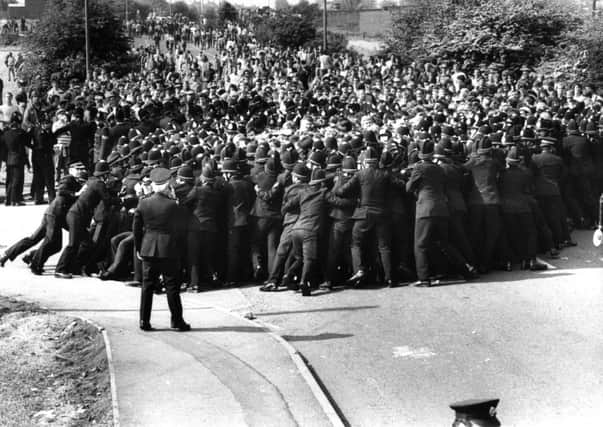Orgreave watchdog’s Labour links come under fire


Cindy Butts, Commissioner for Yorkshire for the Independent Police Complaints Commission, has taken on the review into reports of collusion between officers over the violence at the Rotherham coking plant.
The case was referred to the IPCC by South Yorkshire Police in November and since then officials have been looking through more than 65,000 documents relating to clashes between police and miners during the 1984-5 strike.
Advertisement
Hide AdAdvertisement
Hide AdTelevision footage showed miners being beaten with truncheons by police, and a year later 95 miners who had been prosecuted for alleged rioting and unlawful assembly were all acquitted.
The IPCC is nearing a decision on whether the case meets the “exceptional circumstances” criteria where a full investigation could be launched like that into the Hillsborough tragedy.
But Lord Tebbit, the Conservative grandee who served in Margaret Thatcher’s Cabinet, has criticised the decision to put Ms Butts in charge of the investigation because of her links to the Labour party.
Prior to becoming an independent member of the Metropolitan Police Authority, she was a researcher for Clive Soley when he was chairman of the Parliamentary Labour Party during Tony Blair’s first term in office.
Advertisement
Hide AdAdvertisement
Hide AdLord Tebbit said the appointment was “entirely inappropriate” and added: “You might just as well set up a commission with me in charge to examine the conduct of the pickets.”
He added that he saw no need for police officers to face investigation “unless there is a very clear reason that is now known that was not known at the time”.
A spokesman for the IPCC said it was “independent of the police and political parties.” He added: “The Commission is made up of Commissioners, who oversee and take ultimate responsibility for IPCC investigations, casework and the promotion of public confidence in the complaints system.
“The Commission itself holds collective responsibility and any decision on the application of the exceptional circumstances criteria cannot be made by an individual commissioner.
Advertisement
Hide AdAdvertisement
Hide Ad“Under the regulations it is a decision that is ultimately made by the chair and deputy chairs following consultation with the Commission.”
Barbara Jackson of the Orgreave Truth and Justice Campaign said she was “more concerned about former police officers being involved with the IPCC and conducting investigations into their own colleagues.”